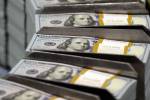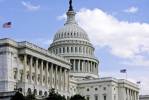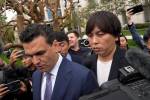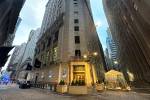Analysts split over debt-ceiling decision’s effect on CD buyers
If you're wondering what will happen to your investments if Congress fails to raise the federal debt ceiling, as is now under debate in Washington, you only have to ask an expert.
Just don't expect a unanimous answer.
Greg McBride, senior financial analyst for Bankrate.com, an online consumer financial site, predicts that certificate of deposit rates will swoon if Congress remains stalled on raising the debt ceiling for long.
"This game of debt-ceiling chicken is like waving around a gun," McBride said, suggesting the possibility of a financial accident.
Investors will fear that the government will halt issuing additional Treasury bills, notes and bonds if the debt ceiling isn't lifted, McBride said. Therefore, investors will bid up the price on Treasurys which will drive down the yield on both Treasurys and CD rates.
McBride also suggested that the ultimate risk is if the economy stalls, banks will lower CD rates because they'll have little demand for loans.
Republicans in Washington intend to stage a vote in the House next week on legislation to raise the nation's debt limit without requiring spending cuts, a measure expected to fail.
Treasury Secretary Tim Geithner has said Congress must raise the current limit, which is $14.3 trillion, by Aug. 2.
While McBride says Geithner's move would benefit CD buyers, other financial analysts say he's 180 degrees off.
"I would say exactly the opposite (regarding yields on Treasurys)," Nevada State Bank economist Jeff Thredgold said.
Panic, fed by talk of a potential federal government default and Standard & Poor's recent "negative" outlook on federal debt ratings, could cause investors to dump Treasurys, not buy them, Thredgold said. The massive selling would drive up yields, he said.
"It would potentially do long-term damage to the government's ability to borrow at extremely low rates," Thredgold said. "It increases the Treasury's cost of money over the next year, next five years, next 10 years, because the risk of default is there and it wasn't before."
However, "there is going to be very little impact on bank CD rates,'' he said.
Banks are most influenced by low rates the Federal Reserve Board sets on federal funds rates, which are what banks charge each other for overnight loans, Thredgold said.
The Federal Reserve has kept the federal funds rate between zero and 0.25 percent for 29 months, he said.
Stephen Brown, director of the Center for Business and Economic Research at the University of Nevada, Las Vegas, partly agreed with Thredgold.
Investors holding Treasurys may substitute the bonds of other countries or possibly bank certificates of deposit if Congress appears unable to agree on lifting the debt ceiling, and that will cause the yields on Treasurys to increase, not fall. He expects an increase in interest rates, because people will fear a government default, which Brown considers unlikely.
Republicans and Democrats ultimately will compromise, rather than let the government go into default.
"I think the fear of default is overblown. It could happen," he said.
However, he's not sure whether investors would turn to bank CDs or not, because, like Treasurys, they are backed by the federal government.
"A lot of the bidding for Treasury bonds comes from foreign investors," Brown said. "They are the ones who will break away from Treasurys and that's going to put upward pressure on rates."
Contact reporter John G. Edwards at
jedwards@reviewjournal.com or 702-383-0420.























